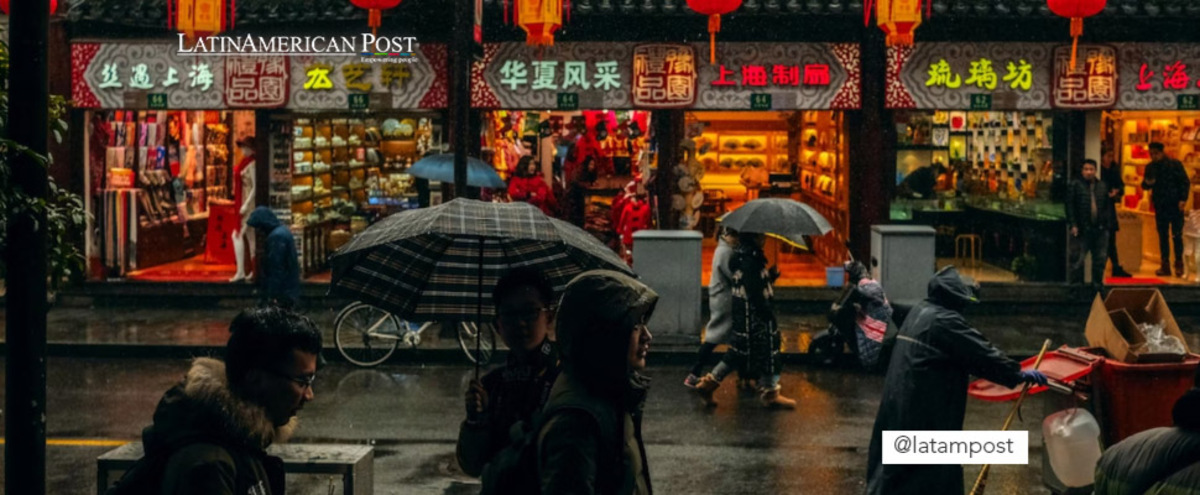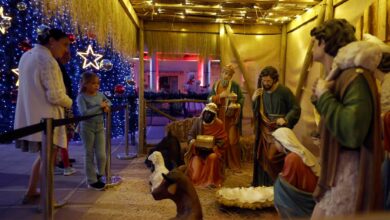How Is Christmas in Countries with Christian Minorities?
At LatinAmerican Post we toured three countries that, although a part of their population is Christian, must be very secretive to enjoy this celebration; in some they may even end up in jail .

Photo: Unsplash
LatinAmerican Post | Christopher Ramírez Hernández
Listen to this article
Leer en español: ¿Cómo es la navidad en países con minorías cristianas?
On December 25, Christmas is celebrated throughout the Western world, a holiday that, amid the merriment, dancing, songs, dinners and gifts, has a religious background typical of Christian culture: the birth of Jesus.
For Christians, this was the date on which 'El Salvador' was born exactly 2022 years ago (according to the Gregorian calendar) in a manger in Bethlehem (a city near Jerusalem) during the rule of the ancient Roman Empire.
Now, although this religion moves the faith of more than 2,400 million people, according to figures from the Pew Research Center, it must be remembered that there are currently more than 8 billion human beings inhabiting planet Earth, so there are several countries who practice another religion (such as Buddhism, Islam, or Hinduism as the most popular). Therefore, they do not have among their plans to celebrate the birth of 'The Nazarene'.
You will also like to read: Gunpowder is a danger to health, the environment and animals
However, many of these nations have a small minority that believes in Jesus and his teachings, so their governments, in order to defend the right to religious freedom, do not prevent these people from celebrating Christmas. However, there are others who actually hate this date so much that they ban it by all means.
Christmas in China
One of these countries, of course, is the People's Republic of China, in which there are various religions such as Buddhism, Taoism and Islam, as well as a small share of Christianity divided between Catholicism and Protestantism.
Although the Constitution of that country ensures that “the citizen of the People's Republic of China enjoys freedom of belief" and that "no state body, social organization or individual can force any citizen to profess or not a certain religion, nor can it discriminate against believing or non-believing citizens”, the truth is that currently the reality is different.
Since December 2017, the Communist Party led by the top leader of China, Xi Jinping, began by banning the Christmas celebration to any member of this community, assuring that this holiday is nothing more than “spiritual opium”. "As Christmas approaches, leaders, and officials of all grades should promote traditional Chinese culture, and take on the task of building a spiritual house for the people,” the official document issued at the time cites.
Added to this decision, various institutions, both governmental and “private”, had to completely disassociate themselves from this tradition. For example, a company in Gansu had to remove the Christmas tree from its web catalog, while a university in Shenyang did the same: "In recent years, some young people have blindly celebrated Western religious holidays such as 'Silent Night ' – the Chinese term for Christmas Eve – and Christmas Day, as a result of the commercial clamor that revolves around Western culture.
The same happens with some places of a religious nature, such as Christian churches, which received warnings from the Chinese authorities, urging them not to celebrate Christmas publicly in order to avoid reprisals against them, according to reports. RFA agency. "We are afraid to meet in public (because such gatherings) have been designated as illegal gatherings," a pastor told the aforementioned outlet.
For this reason, since 2019 it is common for Christian believers to prefer to hold their celebrations clandestinely, in order to avoid problems with the authorities in their country.
North Korea
The implications of being a believer in North Korea is no secret to anyone, and of course Christmas is no exception, especially with the arrival of Kim Jong-un to power. The top leader of the North Koreans decided to end the Christmas festivities in his country since 2016, when he replaced this celebration with the birth of his grandmother, Kim Jong-suk.
In reality, the dictator's determination was to "prohibit any gathering related to drinking, singing and other entertainment," according to the Yohap agency, as Christmas is a rather noisy party for the regime in that country.
With all this, there are several hotels that still have Christmas trees and lights on their facades, although in reality this is only done with the consent of the Pyongyang (North Korean capital) authorities as an excuse to attract tourists to the city.
Thus, ordinary Christians should be very careful if they want to celebrate the birth of Jesus, because as reported by the New York Post, numerous people have ended up in prison because of this festivity.
Tajikistan
Finally, there is Tajikistan, a country that, although it is not the most famous in the international news, is famous for its controversial restrictions against Christmas, and social life itself.
For the Government of that country, especially the Ministry of Education, it is unheard of for the youngest to be involved in religious holidays such as Christmas, which they call a trigger for the disrespect of the secular culture that its Constitution defends.
In this sense, the use of fireworks, meals around a celebration, the delivery of gifts around the trees, among other acts typical of this festivity, are illegal. In fact, since 2015 the use of Christmas trees in all educational institutions in the country has been illegal.
In addition, it is also against the law to use the image of Father Frost (the Russian version of Santa Claus) on television, as well as to dress up as this character. This initiative was born after the murder of a man dressed as the 'Russian Santa Claus', in the middle of a street fight in 2011.




